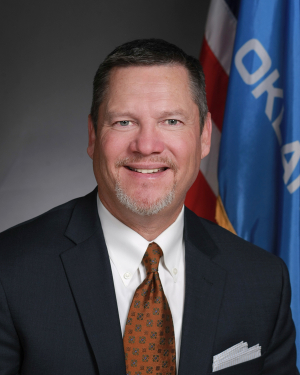Access to health care is one of the most serious challenges facing many states, including Oklahoma.. We have shortages in all areas of medical providers, and we’re working hard to address this through workforce development initiatives involving our state colleges, universities and CareerTechs.
These are issues that impact both large and small communities throughout Oklahoma, but for rural communities, there’s another critical concern, and that’s keeping local hospitals from closing their doors. Closures decrease access to health care, and force patients to drive tremendous distances to get the care they need, but that’s not the only problem. Rural hospitals are also economic drivers within their communities and counties. When one closes its doors, it causes hardships on multiple levels.
Rural hospitals throughout Oklahoma were already struggling prior to 2020, but their situation only became more dire as a result of the COVID-19 pandemic as resources were stretched beyond their limits. While the pandemic-level patient loads have subsided, costs have continued to rise, for both labor and other expenditures. The bottom line is our rural hospitals need help.
That’s why I filed Senate Bill 293 this year, which will allow qualifying rural hospitals to convert to a new designation, as a Rural Emergency Hospital (REH) in order to avert potential closure. Hospitals granted this designation will receive federal payments of approximately $3.2 million per REH in 2023, with gradual increases in subsequent years.
After previously winning support in both the Senate Health and Human Services Committee and the full Appropriations Committee, on Thursday, I presented this bill to the full Senate, where it was passed nearly unanimously, with bipartisan support. The measure now moves across the rotunda for consideration in the House of Representatives, first in committee, then on the floor.
Thursday was the deadline for our committees to vote on bills that were introduced in the Senate. While we’ve held floor votes on a few of these as they been vetted and approved over the past four weeks, now our attention really will be focused on getting the rest of those bills approved in committee onto the floor for further consideration.
Meanwhile, as vice chair of Appropriations, I can report work is continuing on the Fiscal Year 2024 budget. As I shared in my last article, the amount certified in February by the Board of Equalization for appropriations was revised down from the December certification by some $611 million, largely due to lower than projected prices in oil and gas. We’re continuing to monitor those numbers. Our chair, Senator Roger Thompson, and I are continuing to meet weekly with our subcommittee chairs and with our counterparts in the House as well as the governor’s office.
Even though Oklahoma’s economy is still one of the strongest in the country, there are always going to be more needs and more wants than we actually have funding for, and we’re still concerned about the possibility of a recession. Not everyone is as cautious. In fact some politicians have actually advocated for tapping our record savings, not for emergencies or economic downturns as intended, but for ongoing expenditures. Savings are one-time funds. Using one-time money for ongoing expenses will lead us straight into a financial hole that could take years to climb out of . We must make sure our budget is not only able to meet the most important needs we’ll be facing in FY ’24, but one that is sustainable in the years beyond that.
Please feel free to contact my Capitol office with any questions or concerns you may have about legislation or other issues impacting our state at 405.521.5628 or at Chuck.Hall@oksenate.gov.




Be the first to comment on "Senator Hall: Bottom line is our rural hospitals need help"